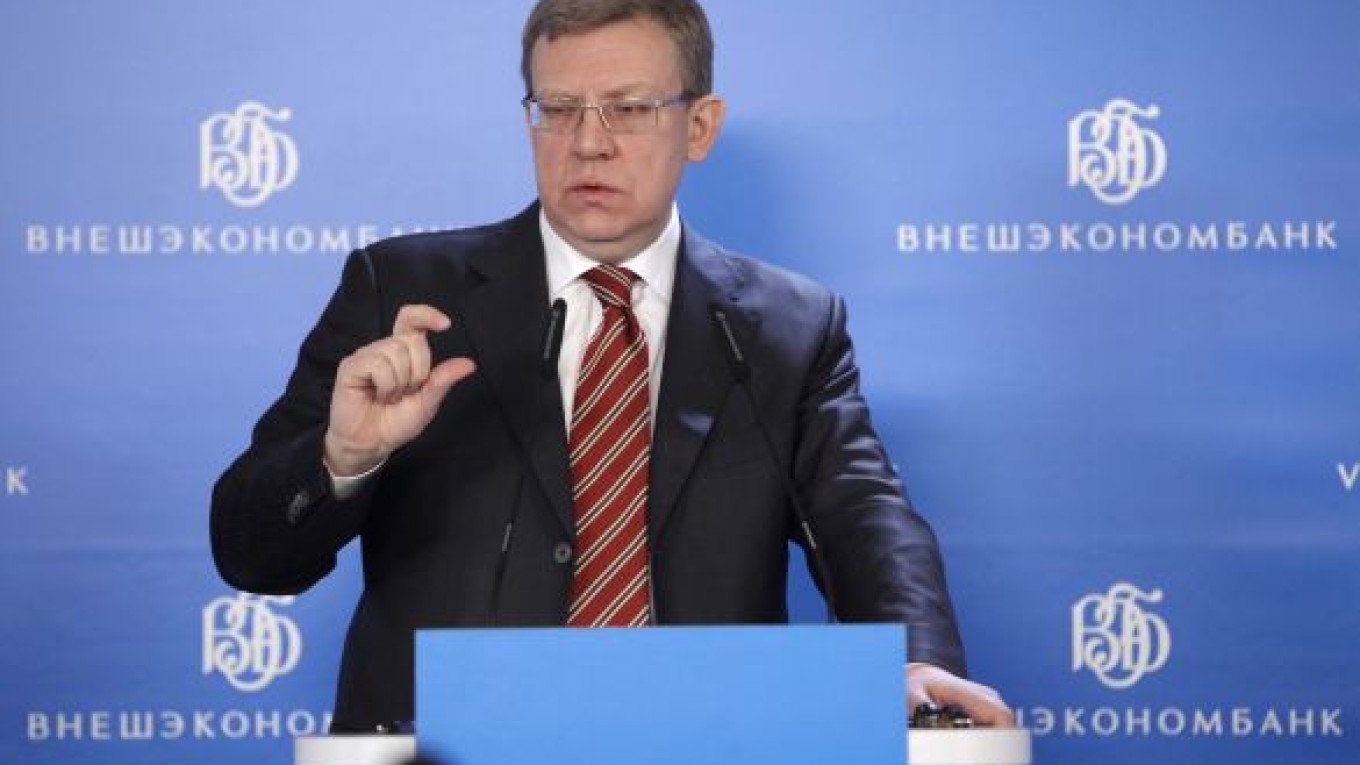The government will sell off most of the state enterprises slated for privatization through an initial public offering, Finance Minister Alexei Kudrin said Tuesday.
“This is not a sale of stakes, with the proceeds going into the budget, but an IPO, the result of which being that the money will become part of the equity of the company,” he said, Interfax reported.
“The capitalization of the company will be increased at the expense of a lower state stake.”
The government plans to sell off stakes in 14 strategic companies next year, as well as 435 other state-owned enterprises for a total of 77 billion rubles ($2.5 billion).
A total of 5,500 Russian companies could be floated in the next few years, First Deputy Prime Minister Igor Shuvalov said in September.
Russia remains a weak link in global financial markets, as volatility in its equities and currency often scare away foreign investors.
“We currently remain a weak link in the global economy as far as capital participation,” he said. “We will experience this volatility on our stock indices, our balance sheet and currency exchange rate.”
Russia’s equity markets plunged among the steepest in the world last year with the MICEX Index falling 73 percent from May to October 2008. The ruble experienced a similar drop, falling 36 percent from its high of 23.1 in July 2008 to a low of 36.3 in February.
Part of this is because the monetary policies used by Russia to fight the crisis were too weak, and the country should have followed China in using strong monetary measures, he said. He added that China had increased its money supply two times more than Russia had in order to maintain inflation and low interest rates.
Russia “has made mistakes in money and credit policy. We could have been much tougher — even now,” he said.
He added that the country was at risk by supporting its precrisis spending level, as it is facing a budget of 7.3 percent of gross domestic product in 2009.
The government’s planned eurobond sale will help close part of the gap, and Kudrin said a decision on which banks would participate in the issue will be made within a few days.
In October, Deputy Finance Minister Dmitry Pankin named Citi, Merrill Lynch, Goldman Sachs, JPMorgan, HSBC, Barclays, Deutsche Bank and Nomura as possible participants.
Pankin would not specify when the bonds could be issued, saying the government will look at the oil prices, the overall economic situation and the need for cash at the time.
Last week, Deputy Economic Development Minister Andrei Klepach said Russia might need to sell only $8 billion to $10 billion of eurobonds, down from an official target of $18 billion, as the ministry raised its forecast for oil prices.
But the large volume of sovereign bonds in circulation will challenge capital markets over the next few years, Kudrin said.
“States will become key borrowers on the capital markets in the next two years,” he said, adding that sovereign borrowers will “pull away and push aside” the private ones.
A Message from The Moscow Times:
Dear readers,
We are facing unprecedented challenges. Russia's Prosecutor General's Office has designated The Moscow Times as an "undesirable" organization, criminalizing our work and putting our staff at risk of prosecution. This follows our earlier unjust labeling as a "foreign agent."
These actions are direct attempts to silence independent journalism in Russia. The authorities claim our work "discredits the decisions of the Russian leadership." We see things differently: we strive to provide accurate, unbiased reporting on Russia.
We, the journalists of The Moscow Times, refuse to be silenced. But to continue our work, we need your help.
Your support, no matter how small, makes a world of difference. If you can, please support us monthly starting from just $2. It's quick to set up, and every contribution makes a significant impact.
By supporting The Moscow Times, you're defending open, independent journalism in the face of repression. Thank you for standing with us.
Remind me later.


